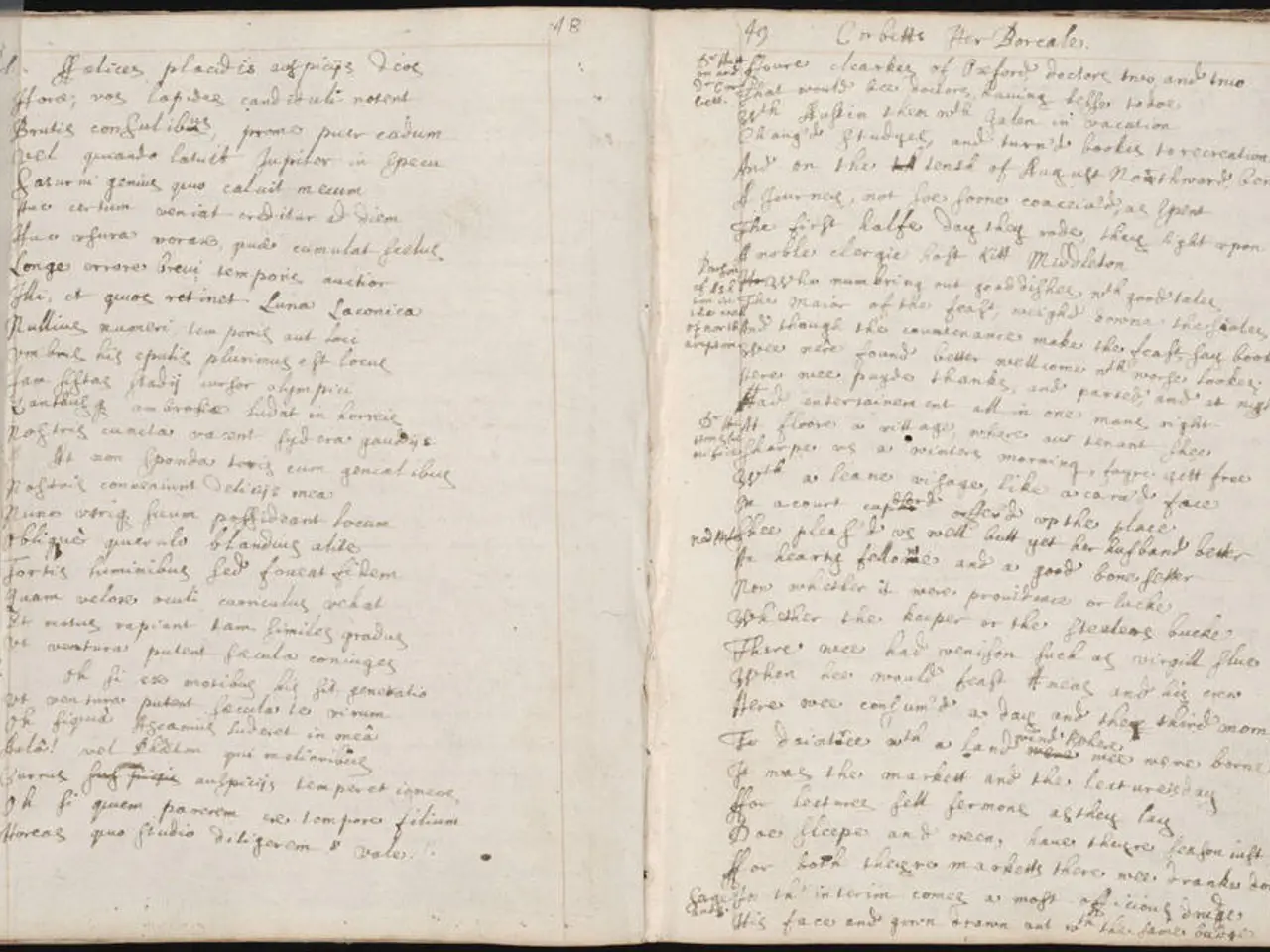Psychological Growth Phases: Sigmund Freud's Theory of Psychosexual Development
In the early 20th century, Sigmund Freud proposed the psychosexual theory of development, suggesting that early childhood experiences shape personality. This theory posits that human development occurs in five stages, each characterized by a focus on different erogenous zones and conflicts.
The five stages of psychosexual development are: 1. Oral Stage (Birth to 1 Year) 2. Anal Stage (1 to 3 Years) 3. Phallic Stage (3 to 6 Years) 4. Latency Stage (6 to 12 Years) 5. Genital Stage (12 Years and Beyond)
Each stage of psychosexual development is associated with specific fixations that can manifest as behaviors in adulthood. For instance, in the Oral Stage, an infant derives pleasure from oral activities such as sucking, chewing, and biting. Overindulgence or deprivation can lead to oral fixation, resulting in behaviors such as nail-biting, smoking, overeating, or excessive talking in adulthood.
The Phallic Stage involves identifying with the same-sex parent and developing the Oedipus Complex (boys) or Electra Complex (girls). Unresolved conflicts in this stage may lead to problems with authority and relationships later in life. The Genital Stage marks the onset of puberty, where individuals develop romantic and sexual relationships with others. Unresolved conflicts from previous stages may lead to struggles with intimacy, relationships, or sexual dysfunction in adulthood.
The Latency Stage is a period of relative stability in psychosexual development, where sexual impulses are repressed, and children focus on social interactions, friendships, education, and developing life skills. The Anal Stage is centered around toilet training, where children learn to control their bowel and bladder movements. Strict toilet training may lead to an anal-retentive personality, while lenient training may result in an anal-expulsive personality.
However, Freud's psychosexual theory has received criticism for its focus on sexuality and its lack of empirical evidence. Critics argue that Freud overemphasized the role of sexuality in human development and that the theory lacks robust empirical data supporting the distinct psychosexual stages and mechanisms such as the Oedipus complex.
Moreover, the theory has been criticized for its androcentrism and gender bias. Freud treated male development as the norm and female development as a deviation. Concepts like penis envy portray girls as passive and inferior, reflecting deep gender biases in Freud’s work.
Modern psychology integrates Freud's ideas with newer theories, recognizing emotional and cognitive development as multifaceted. Many therapists use Freud’s insights about unconscious processes and early experiences as conceptual tools, integrating psychosexual development ideas with cognitive-behavioral or other therapeutic approaches to address both unconscious roots and current symptoms.
Later psychoanalytic theorists have revised and expanded Freud's ideas, emphasizing different relational dynamics such as pre-Oedipal mother-child relations and moving away from strictly phallocentric views. The Oedipus complex, while controversial, is sometimes reframed metaphorically to highlight tensions between natural desires and cultural authority rather than as a literal familial conflict.
Thus, while Freud’s psychosexual theory is largely regarded as outdated and criticized for its scientific, cultural, and gender shortcomings, it retains some heuristic value in psychoanalytic practice and developmental psychology as a historical foundation and interpretive framework. Despite its limitations, Freud's theory continues to influence contemporary Western culture and offers valuable insights into the complexities of human development and personality.
References: 1. Greenberg, J. (2012). The Cambridge Companion to Freud. Cambridge University Press. 2. Pope, K. S., & Tabachnick, B. G. (2002). Freudianism: A Reappraisal. American Psychologist, 57(1), 13-21. 3. Roazen, P. (1991). The Making of Freud: The Conflict of Civilizations and the Creation of Psychoanalysis. Knopf. 4. Freud, S. (1905). Three Essays on the Theory of Sexuality. Standard Edition, Vol. 7. Hogarth Press. 5. Freud, S. (1933). New Introductory Lectures on Psycho-Analysis. Standard Edition, Vol. 22. Hogarth Press.
- In the context of mental health and health-and-wellness, unresolved conflicts during the Phallic Stage may lead to problems with authority and relationships later in life, as suggested by Freud's psychosexual theory.
- The focus on sexuality in Freud's psychosexual theory has been a subject of criticism, with critics arguing that it lacks robust empirical evidence and overemphasizes the role of sexuality in human development.
- Modern psychology integrates Freud’s ideas with newer theories, recognizing the complexities of human development and personality, which involve not only psychosexual development but also emotional and cognitive factors.




